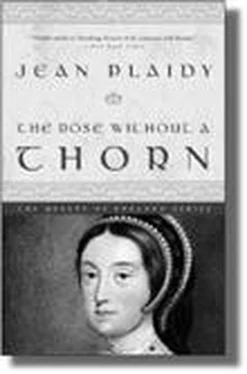Jean Plaidy - Mary, Queen of France - The Story of the Youngest Sister of Henry VIII
Здесь есть возможность читать онлайн «Jean Plaidy - Mary, Queen of France - The Story of the Youngest Sister of Henry VIII» весь текст электронной книги совершенно бесплатно (целиком полную версию без сокращений). В некоторых случаях можно слушать аудио, скачать через торрент в формате fb2 и присутствует краткое содержание. Жанр: Старинная литература, на русском языке. Описание произведения, (предисловие) а так же отзывы посетителей доступны на портале библиотеки ЛибКат.
- Название:Mary, Queen of France: The Story of the Youngest Sister of Henry VIII
- Автор:
- Жанр:
- Год:неизвестен
- ISBN:нет данных
- Рейтинг книги:4 / 5. Голосов: 1
-
Избранное:Добавить в избранное
- Отзывы:
-
Ваша оценка:
- 80
- 1
- 2
- 3
- 4
- 5
Mary, Queen of France: The Story of the Youngest Sister of Henry VIII: краткое содержание, описание и аннотация
Предлагаем к чтению аннотацию, описание, краткое содержание или предисловие (зависит от того, что написал сам автор книги «Mary, Queen of France: The Story of the Youngest Sister of Henry VIII»). Если вы не нашли необходимую информацию о книге — напишите в комментариях, мы постараемся отыскать её.
Mary, Queen of France: The Story of the Youngest Sister of Henry VIII — читать онлайн бесплатно полную книгу (весь текст) целиком
Ниже представлен текст книги, разбитый по страницам. Система сохранения места последней прочитанной страницы, позволяет с удобством читать онлайн бесплатно книгу «Mary, Queen of France: The Story of the Youngest Sister of Henry VIII», без необходимости каждый раз заново искать на чём Вы остановились. Поставьте закладку, и сможете в любой момент перейти на страницу, на которой закончили чтение.
Интервал:
Закладка:
“I am pleased to do so.”
“That is good. Tudors should stand together.”
“Have no fear, my lady. I should always stand with Henry.”
The Countess patted Mary’s hand. “It rejoices me to see this love between you. Always remember it, and when you are in a strange land do not forget that you are a Tudor and owe loyalty to your own.”
“I shall always be loyal to Henry.”
Margaret Beaufort, Countess of Richmond and Derby, took the needlework from her granddaughter’s hands and began to unpick the stitches. She was not particularly interested in the work but she did not wish those sharp bright eyes to read the emotion she feared she might betray. She was anxious on behalf of her son for whom she had lived since that day, over fifty years ago, when he had been born, a posthumous child; she had schemed for him, and the great goal of her life had been to see him on the throne of England. Few women could have seen such an ambitious dream come true; for it had been a great struggle and at one time it had seemed well-nigh impossible of achievement.
But there he was on the throne of England—her beloved son; and never would she forget the day when the news of what had happened on Bosworth Field was brought to her.
“Glory be to God,” she had cried; and often she asked herself, for she was a pious woman, whether then and on other occasions she had been guilty of idolatry; for never had a woman adored a son as she had her Henry.
He was well aware of it, being shrewd enough to know who was his best friend; and the woman who had been nearest and dearest to him during his years of struggle and of glory was his mother.
Now she was frightened, for she could see death creeping nearer and nearer; it had already set a shadow on those features, so cold and unprepossessing to others, so dear and beautiful to her.
How could she bear to go on living if her beloved son should be taken from her? What purpose would there be in life when for so long she had had only one ambition—to serve him?
He had shown her that she could still serve him, when he had read the thoughts in her melancholy eyes.
“Mother,” he had said, “you must stay close to the children to guide them, for they are young yet.”
“My beloved,” she had cried out in alarm, “they have the best of fathers to guide them.”
“They need their granddame. Henry is headstrong. I know full well that he approaches his eighteenth birthday but he is as yet a boy.” The King had sighed deeply. “I sometimes think that being so full of bodily vigor has made him over fond of useless pastimes. He is not as serious as I could wish. Margaret is in the care of her husband. And Mary …”
“Mary is like her brother—headstrong and greatly indulged by all.”
“She needs a strong hand. I have tried to wean her from her frivolity.”
“You love her too dearly, my beloved. She is sharp and knows well how to play on your feelings.”
“But, Mother, I have never been a tender father. At times I have watched children and their parents and I have said to myself: Mine never run to me in that fashion. Mine never laugh with me like that.”
“You are King and no child ever had a better father.”
“I have heard my wife tell her children stories of her childhood, of the gaiety of her father … and he was a king.”
“You have been a good father to your children, Henry.”
But he was sad. A sign that he was growing more and more infirm. He was remembering certain acts which had taken place during his reign, and was wishing they had not. He even regretted some of the methods by which he had extorted money from his subjects. As if it had not been important to build up a rich exchequer! thought his mother. As if he had not taken all for the glory of his country and never for himself! How much had he ever spent on fine raiment? Had he ever frittered away one golden crown on senseless pleasure?
She was thinking of this now as she picked at the stitches in Mary’s woeful work. Mary watched her in silence, sensing her mood and half understanding what had inspired it; but she could not help thinking: But if my father dies there will still be a king of England. And it was so much more pleasant to picture young Henry, resplendent in purple velvet and ermine, than old Henry, withered with disease.
“Mary, my child.”
“Yes, my lady.”
“The King suffers much in health.”
Mary nodded.
“He loves you dearly. Why do you not go to him and show a little tenderness?”
Mary’s lovely blue eyes were wide with astonishment. “Go to the King!” she cried.
“Forget he is the King for a while. Remember only that he is your father. Go to him, and when you have knelt and kissed his hand, put your arms about his neck, tell him that you have ever loved him dearly and that he has been a good father to you.”
Mary shrank away. Was her grandmother serious? Was she raving? One did not go to the King and put one’s arms about his neck. Even his favorite daughter could not do that.
“He would be a little startled at first,” went on her grandmother, “and then he would be so happy. Mary, your father is a great king; he took this bankrupt kingdom—which was his by right—he took it from the usurper Richard, and he made it rich and strong. Such a task was a great tax on his energies and he had little time to laugh and frolic. Perhaps this has made you feel that he is over-stern. But go to him and tell him how much you love him.”
Mary was pensive. It would not be easy, for she, who was always spontaneous, would find it difficult to play a part, and in truth she had no great love for her father.
Her grandmother put the embroidery into her lap and rising, kissed her. Then she went away as though in a great hurry.
Mary paused outside her father’s apartments.
“My lady,” said the page, “His Grace is with his ministers.”
Mary turned away relieved. She had been rehearsing what she would say, and it sounded false to her; she was glad the need to say it was postponed.
The King asked who was at the door, and when told it was the Lady Mary he smiled.
She had some request to make, he thought. What does she wish? Some new bauble? She grows more like her brother every day.
Yet he had a yearning to see the pretty creature; and if it were a new gown or even a jewel she wanted he would perhaps grant her her wish; but he must impress upon her the need for sobriety and explain that all the extravagant display, which had accompanied her nuptial celebrations, had not been for personal vainglory but to show to foreigners that England was wealthy, because wealth meant power.
He turned back to the task before him. He had decided that all those who had been imprisoned in London for debts of under forty shillings should be discharged.
He was beginning to be tormented by remorse when he contemplated the extortions, which Dudley and Empson had committed in his name; and now that his conscience was beginning to worry him on this score, he realized that he was a very sick man indeed.
There were cowslips in the meadows near Richmond and the blackthorn was in blossom. The air was enlivened by birdsong, and all this meant that it was the month of April and spring had come.
But in the Palace the old era was ending and the new one had not yet begun.
The fifty-two-year-old King lay on his bed and thought of his subjects; he wondered ruefully how many of them would shed a real tear at his passing.
Fifty-two. It was not really old; yet he had lived a full life and there was so much of it that he wished he had lived differently. He had recently pilgrimaged to Our Lady of Walsingham and to Saint Thomas of Canterbury, and there he had sworn to build a hospital for the sick poor.
Читать дальшеИнтервал:
Закладка:
Похожие книги на «Mary, Queen of France: The Story of the Youngest Sister of Henry VIII»
Представляем Вашему вниманию похожие книги на «Mary, Queen of France: The Story of the Youngest Sister of Henry VIII» списком для выбора. Мы отобрали схожую по названию и смыслу литературу в надежде предоставить читателям больше вариантов отыскать новые, интересные, ещё непрочитанные произведения.
Обсуждение, отзывы о книге «Mary, Queen of France: The Story of the Youngest Sister of Henry VIII» и просто собственные мнения читателей. Оставьте ваши комментарии, напишите, что Вы думаете о произведении, его смысле или главных героях. Укажите что конкретно понравилось, а что нет, и почему Вы так считаете.












